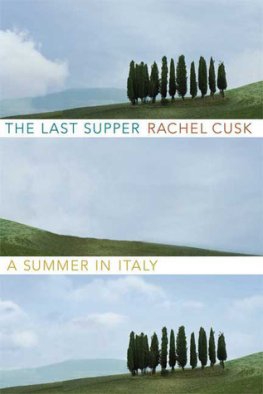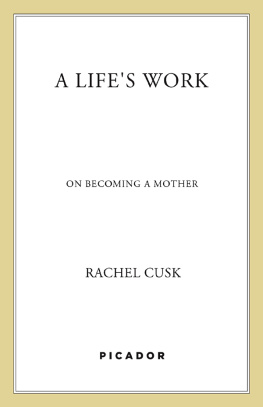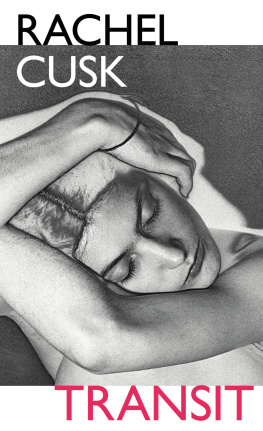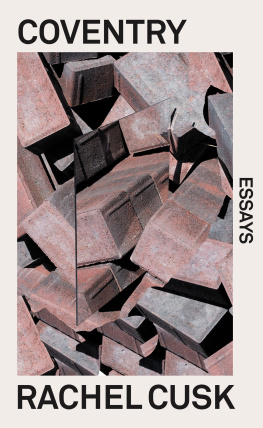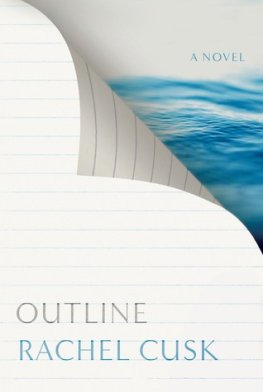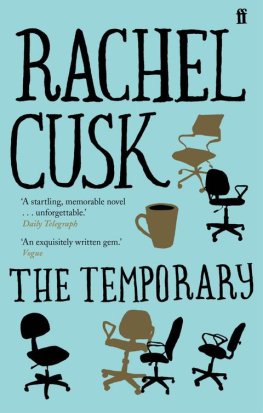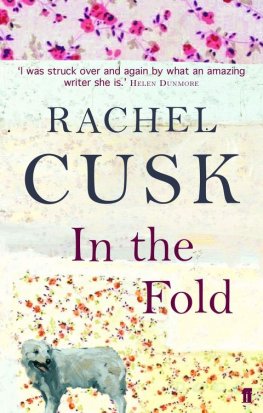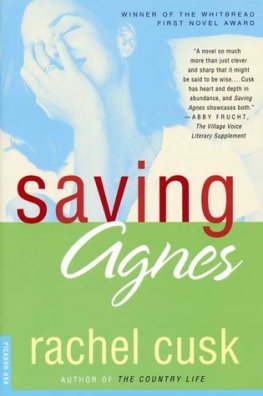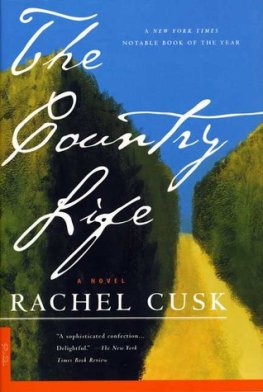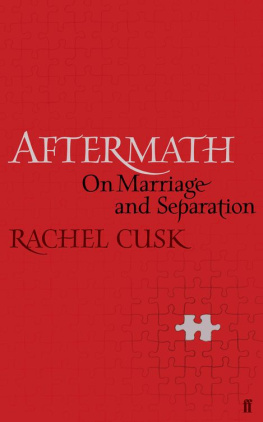Recently my husband and I separated, and over the course of a few weeks the life that wed made broke apart, like a jigsaw dismantled into a heap of broken-edged pieces.
Sometimes the matrix of a jigsaw is undetectable in the assembled picture; there are champion jigsaw-makers who pride themselves on such things, but mostly you can tell. The light falls on the surface indentations its only from far away that the image seems complete. My younger daughter likes doing jigsaws. The older one does not: she builds card houses in whose environs everyone must remain silent and still. I see in these activities differing attempts to exert control, but I am struck too by the proof they provide that there is more than one way of being patient, and that intolerance can take many forms. My daughters take these variations in temperament a little too seriously. Each resents the opposing tendency in the other: in fact, I would almost say that they pursue their separate activities as a form of argument. An argument is only an emergency of self-definition, after all. And Ive wondered from time to time whether it is one of the pitfalls of modern family life, with its relentless jollity, its entirely unfounded optimism, its reliance not on God or economics but on the principle of love, that it failsto recognise and to take precautions against the human need for war.
The new reality was a phrase that kept coming up in those early weeks: people used it to describe my situation, as though it might represent a kind of progress. But it was in fact a regression: the gears of life had gone into reverse. All at once we were moving not forwards but backwards, back into chaos, into history and prehistory, back to the beginnings of things and then further back to the time before those things began. A plate falls to the floor: the new reality is that it is broken. I had to get used to the new reality. My two young daughters had to get used to the new reality. But the new reality, as far as I could see, was only something broken. It had been created and for years it had served its purpose, but in pieces unless they could be glued back together it was good for nothing at all.
My husband believed that I had treated him monstrously. This belief of his couldnt be shaken: his whole world depended on it. It was his story, and lately I have come to hate stories. If someone were to ask me what disaster this was that had befallen my life, I might ask if they wanted the story or the truth. I might say, by way of explanation, that an important vow of obedience was broken. I might explain that when I write a novel wrong, eventually it breaks down and stops and wont be written any more, and I have to go back and look for the flaws in its design. The problem usually lies in the relationship between the story and the truth. The story has to obey the truth, to represent it, like clothes represent the body. The closer the cut, the more pleasing the effect. Unclothed, truth can be vulnerable, ungainly, shocking. Over-dressed it becomes a lie. For me, lifes difficulty has generally lain in the attempt to reconcilethese two, like the child of divorce tries to reconcile its parents. My own children do that, forcing my husbands hand into mine when were all together. Theyre trying to make the story true again, or to make the truth untrue. Im happy enough to hold his hand, but my husband doesnt like it. Its bad form and form is important in stories. Everything that was formless in our life together now belongs to me. So it doesnt trouble me, doesnt bother me to hold his hand.
After a while time stopped going backwards. Even so, we had regressed quite a long way. In those few weeks we had undone everything that led to the moment of our separation; we had undone history itself. There was nothing left to be dismantled, except the children, and that would require the intervention of science. But we were before science: we had gone back to something like seventh-century Britain, before the advent of nationhood. England was in those days a country of compartments: I remember, at school, looking at a map of the early medieval heptarchy and feeling a kind of consternation at its diffusity, its lack of centralised power, its absence of king and capital city and institution. Instead there were merely regions whose names Mercia, Wessex fell effeminately on the ears, and whose ceaseless squabblings and small, laborious losses and gains seemed to lack a driving, unifying force that I might, had I cared to think about it, have identified as masculine.
Our history teacher, Mrs Lewis, was a woman of size and grace, a type of elephant-ballerina in whom the principles of bulk and femininity fought a war of escalation. The early medieval was her period: she had studied at Oxford, and now here she was in the classroom of our mediocre Catholic girls school, encased in a succession of beige tailored outfits with co-ordinating heels from which it seemed her mighty pink form could one day startlingly emerge,like a statue from its dust sheets. The other thing we knew about her, from her name, was that she was married. But how these different aspects of Mrs Lewis connected we had no idea. She gave great consideration to Offa of Mercia, in whose vision of a unified England the first thrust of male ambition can be detected, and whose massive earthwork, Offas Dyke, still stands as a reminder that division is also an aspect of unification, that one way of defining what you are is to define what you are not. And indeed historians have never been able to agree on the question of whether the dyke was built to repel the Welsh or merely to mark the boundary. Mrs Lewis took an ambivalent attitude to Offas power: this was the road to civilisation, sure enough, but its cost was a loss of diversity, of the quiet kind of flourishing that goes on where things are not being built and goals driven towards. She herself relished the early Saxon world, in which concepts of power had not yet been reconfigured; for in a way the Dark Ages were themselves a version of the new reality, were the broken pieces of the biggest plate of all, the Roman Empire. Some called it darkness, the aftermath of that megalomaniacal all-conquering unity, but not Mrs Lewis. She liked it, liked the untenanted wastes, liked the monasteries where creativity was quietly nurtured, liked the mystics and the visionaries, the early religious writings, liked the women who accrued stature in those formless inchoate centuries, liked the grassroots the personal level on which issues of justice and belief had now to be resolved, in the absence of that great administrator civilisation.
The point was that this darkness call it what you will this darkness and disorganisation were not mere negation, mere absence. They were both aftermath and prelude. The etymology of the word aftermath is second mowing, a second crop of grass that is sownand reaped after the harvest is in. Civilisation, order, meaning, belief: these were not sunlit peaks to be reached by a steady climb. They were built and then they fell, were built and fell again or were destroyed. The darkness, the disorganisation that succeeded them had their own existence, their own integrity; were betrothed to civilisation, as sleep is betrothed to activity. In the life of compartments lies the possibility of unity, just as unity contains the prospect of atomisation. Better, in Mrs Lewiss view, to live the compartmentalised, the disorganised life and feel the dark stirrings of creativity, than to dwell in civilised unity, racked by the impulse to destroy.


